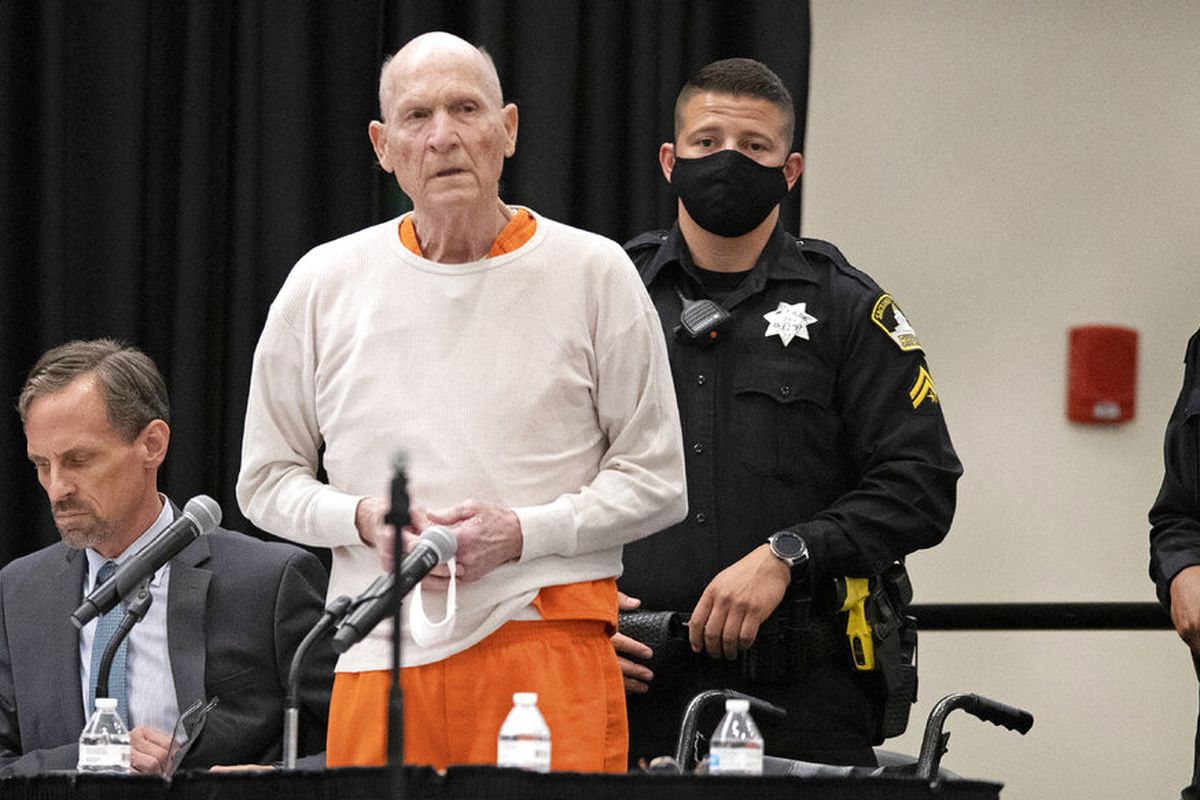In a Shock Move, Golden State Killer Makes Apology

Sacramento County Superior Court Judge Michael Bowman was unmoved.
He said DeAngelo should die in prison with “no mercy” from his jailers after pleading guilty in June to 13 murders and 13 rape-related charges that spanned much of California between 1975 and 1986. The plea deal spared him the death penalty.
“When a person commits monstrous acts, they need to be locked away so they can never harm an innocent person,” the judge said to applause from DeAngelo’s victims.
Investigators in the case pioneered a new method of DNA tracing that involves building a family tree from publicly accessible genealogy websites to narrow the list of suspects.
They linked nearly 40-year-old DNA from crime scenes to a distant relative of DeAngelo and eventually to a discarded tissue they surreptitiously lifted from DeAngelo’s garbage can in suburban Sacramento.
The same technique has since been used to solve 93 murders and rapes across the nation, said Ron Harrington, whose family has been obsessed with solving the 1980 slayings of youngest brother Keith Harrington and his new wife, Patrice Harrington.
It led oldest brother Bruce Harrington to champion a ballot measure passed by California voters in 2004 that expanded the collection of DNA samples from prisoners and those arrested for felonies and has since led to more than 81,000 identifications.
Bowman told DeAngelo he was moved by the courage and strength of the victims and their family members — “all qualities you clearly lack” — who told how they endured sadistic, hours-long assaults.
DeAngelo's rapes and eventual murders followed the same pattern of binding couples he surprised while they slept and assaulting the woman as the man lay helpless.
Read also: Cultural Norms Stall Deliberations of Indonesia's Sexual Violence Bill
He would place dishes on the man's back, warning that he would kill them both if the dishes rattled.
DeAngelo's relatives said that conflicted with their image of the man they loved.
“I personally feel that someone else is inside him who I do not know,” a niece said in a letter read by defense attorneys.
DeAngelo’s sister and a close friend each wrote that he was abused as a boy by an emotionally distant, disciplinarian father.
Prosecutors said they had found no evidence of abuse, but Sacramento County District Attorney Anne Marie Schubert said they learned he was a teenager “who was blowing up animals, who was breaking into homes.”


































